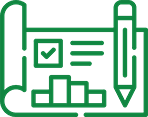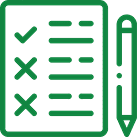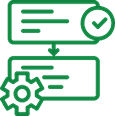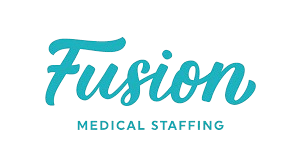Requirements Analysis
We review the requirements and specifications of the application or system to be tested. This helps identify the functional requirements and determine the scope of software functional testing
In today’s competitive market, businesses must develop reliable, robust, and high-quality software applications to safeguard their reputation and investment. Functional software testing is crucial for ensuring that software meets client specifications, guaranteeing usability, stability, and glitch-free performance. However, conducting in-house functional testing can be time-consuming and resource-intensive.
At Jignect, a leading functional testing company, we follow industry-standard processes to comprehensively test your software’s functional specifications. Our team provides independent quality engineering and a wide range of functional testing solutions and software testing services worldwide.
Functional testing software helps simulate real user interactions, allowing testers to verify system behavior under various scenarios and ensure business logic is accurately implemented. Functional Testing evaluates a system against its specified requirements, validating outputs against functional needs with specific inputs. Our skilled QA engineers employ a focused strategy to optimize testing efforts, enhancing time-to-market and ROI across mobile, desktop, or next-gen applications. Using a thorough framework-based methodology, we conduct functional, GUI, database, and regression testing to assess all app components for quality.

We review the requirements and specifications of the application or system to be tested. This helps identify the functional requirements and determine the scope of software functional testing

Drawing on our skills and proficiency, we will help you formulate a strategy and devise a test plan that outlines the approach, resources, and schedule for software functional testing, encompassing everything from start to finish.

We design the functional test cases, including the test scenarios, test data, and test scripts. The functional test cases are designed to validate the functional requirements and ensure that the application or system meets the specified requirements.

Capitalizing on our extensive experience, we assist you in setting up the test environment and configuring the test data required for functional testing. The test environment includes the hardware and software components required to perform functional testing

Experience unprecedented efficiency and get spot-on results from the functional tests. The functional test results are analyzed to determine if the application or system meets the specified requirements.

We aid you in obtaining comprehensive information by creating a functional testing report that outlines the outcomes of the functional testing process. This report encompasses the test results, any identified flaws during functional testing, and suggestions for enhancements. Additionally, our functional testing team conducts follow-ups to ensure that the defects are rectified and reevaluated if required.
We review the requirements and specifications of the application or system to be tested. This helps identify the functional requirements and determine the scope of functional testing.
Drawing on our skills and proficiency, we will help you formulate a strategy and devise a test plan that outlines the approach, resources, and schedule for functional testing, encompassing everything from start to finish.
We design the functional test cases, including the test scenarios, test data, and test scripts. The functional test cases are designed to validate the functional requirements and ensure that the application or system meets the specified requirements.
Capitalizing on our extensive experience, we assist you in setting up the test environment and configuring the test data required for functional testing. The test environment includes the hardware and software components required to perform functional testing
Experience unprecedented efficiency and get spot-on results from the functional tests. The functional test results are analyzed to determine if the application or system meets the specified requirements.
We aid you in obtaining comprehensive information by creating a functional testing report that outlines the outcomes of the functional testing process. This report encompasses the test results, any identified flaws during functional testing, and suggestions for enhancements. Additionally, our functional testing team conducts follow-ups to ensure that the defects are rectified and reevaluated if required.
Through thorough testing of the application or system, functional testing helps pinpoint and resolve any defects, guaranteeing that the application or system fulfills its functional specifications. This improves the software’s overall quality.
Functional testing increases user satisfaction and reduces the risk of user frustration or confusion by ensuring that a software product functions accurately as expected. This can lead to increased customer loyalty and positive feedback.
By thoroughly testing the application or system, functional testing helps increase its reliability and reduce the risk of failure. This helps ensure that the application or system performs as expected and meets the needs of its users.
By thoroughly testing the application or system, functional testing provides confidence in its ability to meet its functional requirements and perform as expected. This helps ensure that the application or system is ready for deployment and use by its users
Functional testing helps identify defects early in the development process, reducing the cost of bug fixes and minimizing the risk of issues arising in later stages. This ensures the application or system is delivered on time and within budget.
















What is functional testing and why is it essential for application success?
Functional testing verifies that all features of your software work according to defined specifications. It is critical for ensuring that users get a reliable and seamless experience. At Jignect Technologies, we’ve successfully implemented functional testing for various domains—check out our case studies to see real-world outcomes.
What does functional testing cover in a software project?
Functional testing covers all critical user interactions and business workflows in a software project, including input validation, data processing, UI behavior, user permissions, and integration with third-party systems. At Jignect Technologies, we tailor our test cases to ensure your software performs reliably under real-world conditions.
Who should opt for functional testing services?
Functional testing is ideal for startups, enterprises, and product-based businesses aiming for zero-defect releases. Whether you’re building a web app, mobile app, or enterprise platform, functional testing ensures every feature behaves as intended.
When should functional testing be included in the development process?
Where is functional testing most beneficial in enterprise applications?
Why is functional testing important before going live?
Launching a product without functional testing can lead to system crashes, broken user flows, and poor customer experience. Thorough functional testing ensures that your application is stable, reliable, and aligned with user expectations.
How do you ensure full requirement coverage during functional testing?
We implement a requirement traceability matrix (RTM) to map each test case to functional requirements. This ensures no feature or condition is missed. Combined with test automation and regular reviews, we provide 100% coverage assurance.